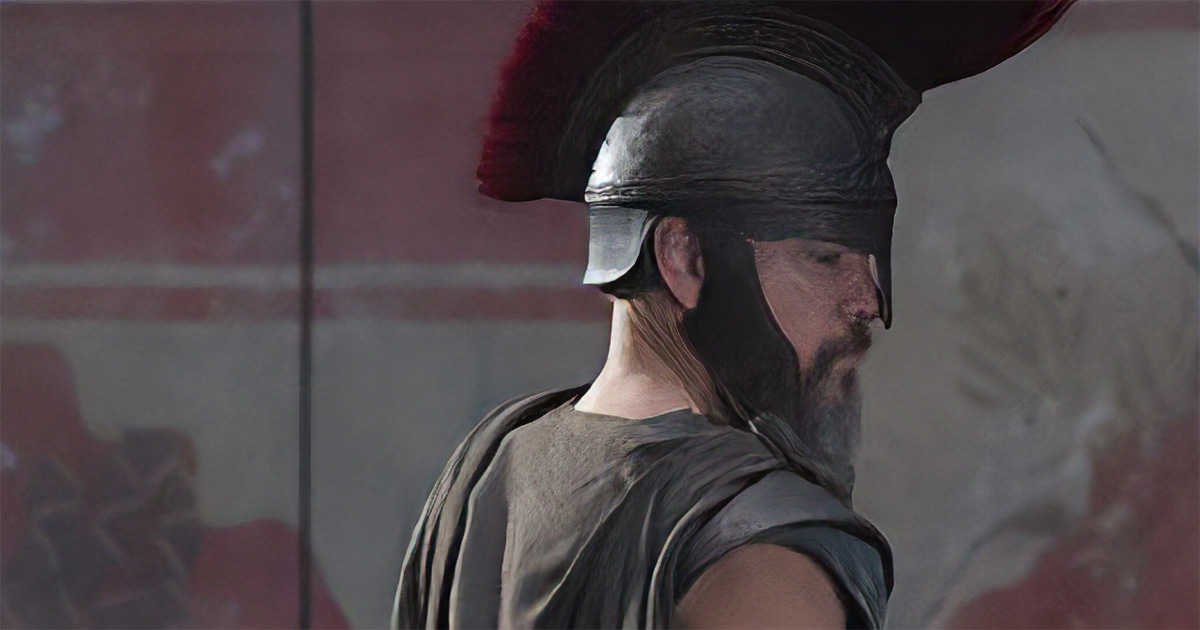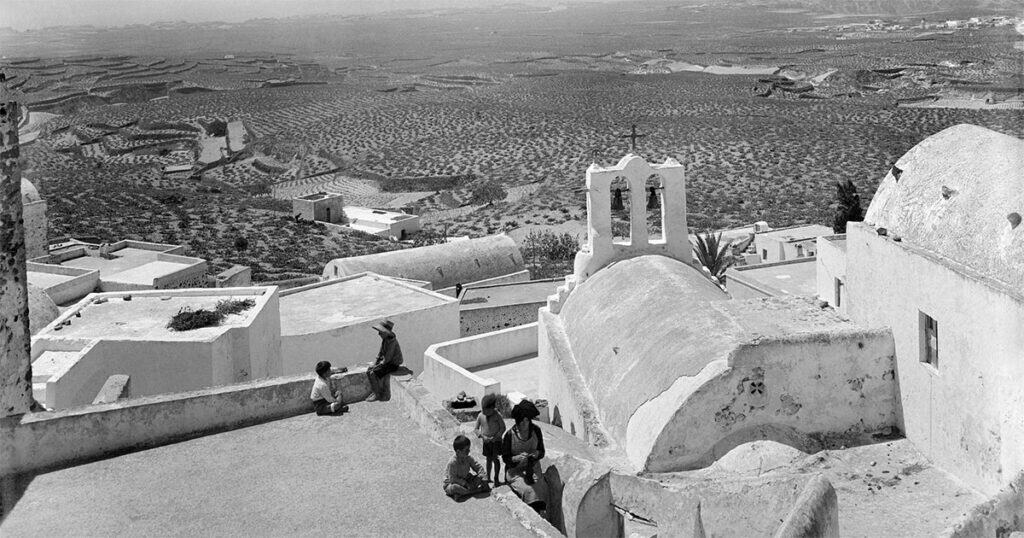A few days ago, something unexpected happened. People began sharing a blurry phone video online, just over a minute long, with shaky frames and muffled sound. These kinds of leaks come and go, but this one was different. It was Christopher Nolan’s Odyssey.
The teaser had been shown in select theaters before Jurassic World Rebirth, which opened in the U.S. on July 2. Someone filmed it during a screening and posted it online. It spread quickly across social media before Universal stepped in and began removing it. But by then, the moment had already passed. The story was out.
The teaser opens on a wide, unsettled sea. A voice speaks about a fallen kingdom, a missing leader, and a son still searching for answers. Then we see Tom Holland as Telemachus, speaking to a character played by Jon Bernthal. The name Odysseus lingers in the air. Toward the end, Matt Damon appears as a weathered man, floating alone on a raft, far from any shore.
The scale is huge. The mood is restrained. The mystery is typical Nolan. But for those of us in the Greek-American community, something about this story feels more personal. Even if you never read Homer, even if you didn’t grow up hearing about Ithaca or Troy, parts of this still land close to home.
Most of us didn’t grow up with the Odyssey as a bedtime story. Maybe it came up briefly in school. Maybe you recognized the name and thought it sounded familiar. But it was never something you reached for when trying to understand where your family came from. What we did grow up with were stories about people who left, people who never came back, people who lived between places. The myth didn’t always show up by name, but the feeling of it was there.
In the teaser, Holland’s Telemachus says, “I need to know what happened to my father.” Bernthal’s character, now confirmed as King Menelaus of Sparta, responds, “Some say he’s rich. Some say poor. Some say he vanished. Some say he’s in prison.” Telemachus asks, “Prison?” And the answer is quiet but firm. “What prison could hold a man like that?”
That line hits in a way that feels familiar. Not because it’s poetic, but because it sounds like something we’ve all heard about someone in our own family. The uncle who disappeared after the war. The grandfather who worked in silence and rarely spoke of his past. The friend who left for Greece and never made it back. The details change, but the feeling stays the same.
This past March, Nolan’s production came to Messinia. They filmed at Methoni Castle, Voidokilia Beach, the Acrocorinth, and Nestor’s Cave. Over 900 locals were brought in as extras. Full-scale replicas of ancient triremes were used for the naval scenes. These ships measured 121 feet and were built according to historical models. Inside Nestor’s Cave, they installed a six-by-six-meter animatronic puppet of the Cyclops Polyphemus, with conservation teams on hand to protect the site.
This is also the first feature film ever to be shot entirely using newly developed IMAX cameras. These cameras are lighter, quieter, and more advanced than those used in Oppenheimer. Nolan worked directly with engineers to make them possible. The production budget is estimated at 250 million dollars. The film is scheduled for global release on July 17, 2026.
So yes, it’s a large-scale production. It has Hollywood stars, international locations, and cutting-edge technology. But for many of us watching that teaser, it felt like something else too. It felt like a mirror.
You don’t need to know mythology to understand what it means when someone is gone and the family doesn’t know how to fill the space they left. You don’t need to follow the path from Troy to Ithaca to feel what it means to be lost or forgotten. These stories are already in our homes. They’re in the way our grandparents look at old photos. In the way a name is spoken softly at the dinner table, then dropped. In the silence between generations.
So when Bernthal’s Menelaus asks, “You got a story about Odysseus?” it doesn’t feel like just a question in a trailer. It feels like a question for us. And whether or not we answer out loud, many of us already know. We’ve had stories like that all along.
This movie might not teach us anything we didn’t already feel, but it might help us see it more clearly. Not in the spectacle, but in the quiet moments. The ones that remind us what it means to come home, or to be the one left waiting.
The Odyssey has been around for thousands of years. Maybe this time, we’ll see just how close it really is.
Cosmos Philly is made possible through the support of sponsors and local partners. If you’d like to become a sponsor or promote your business to our community, get in touch.








